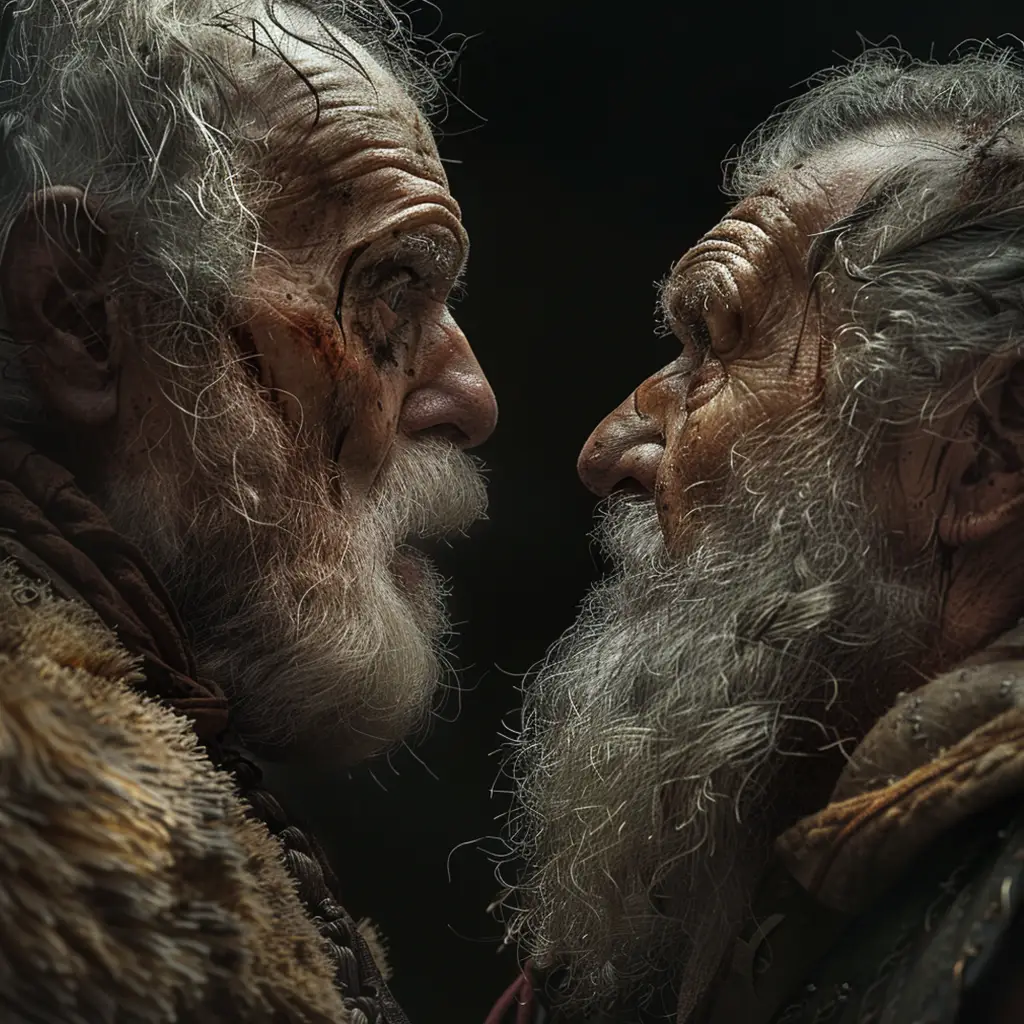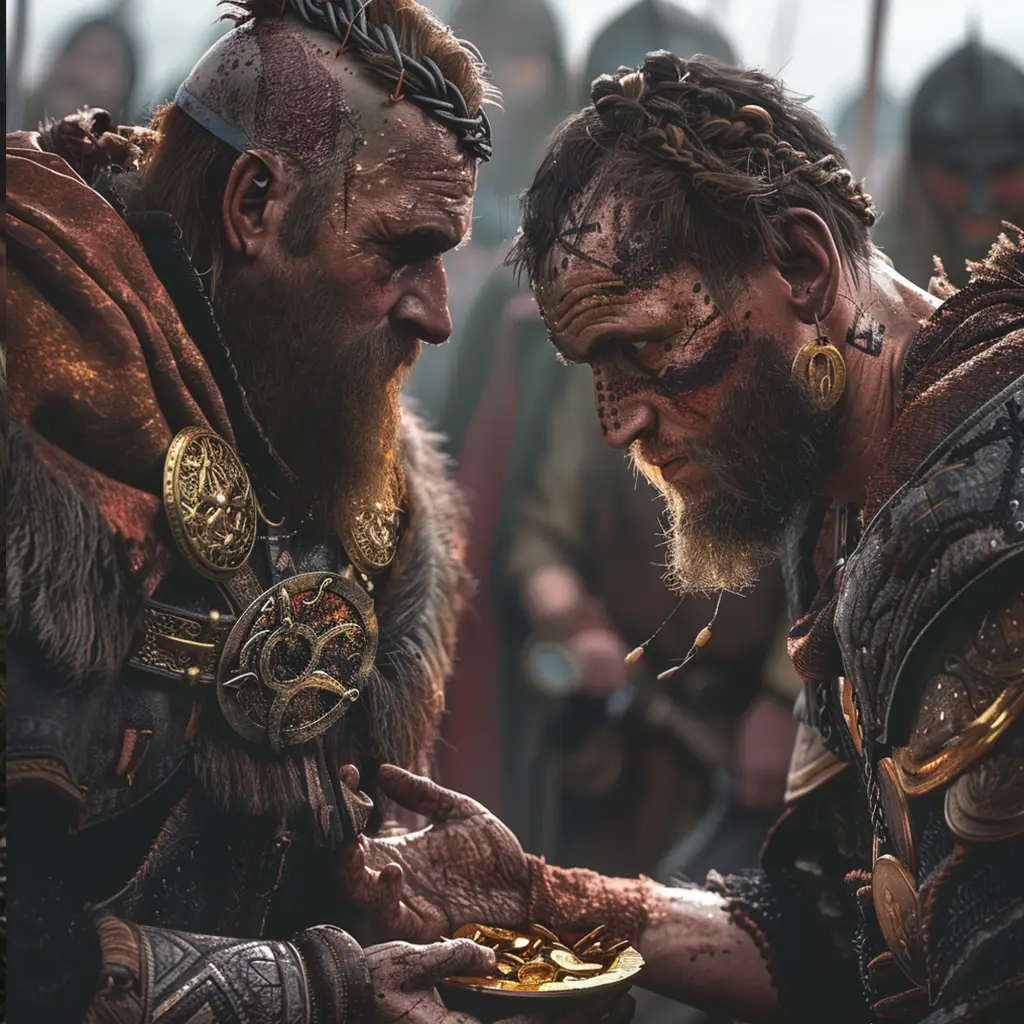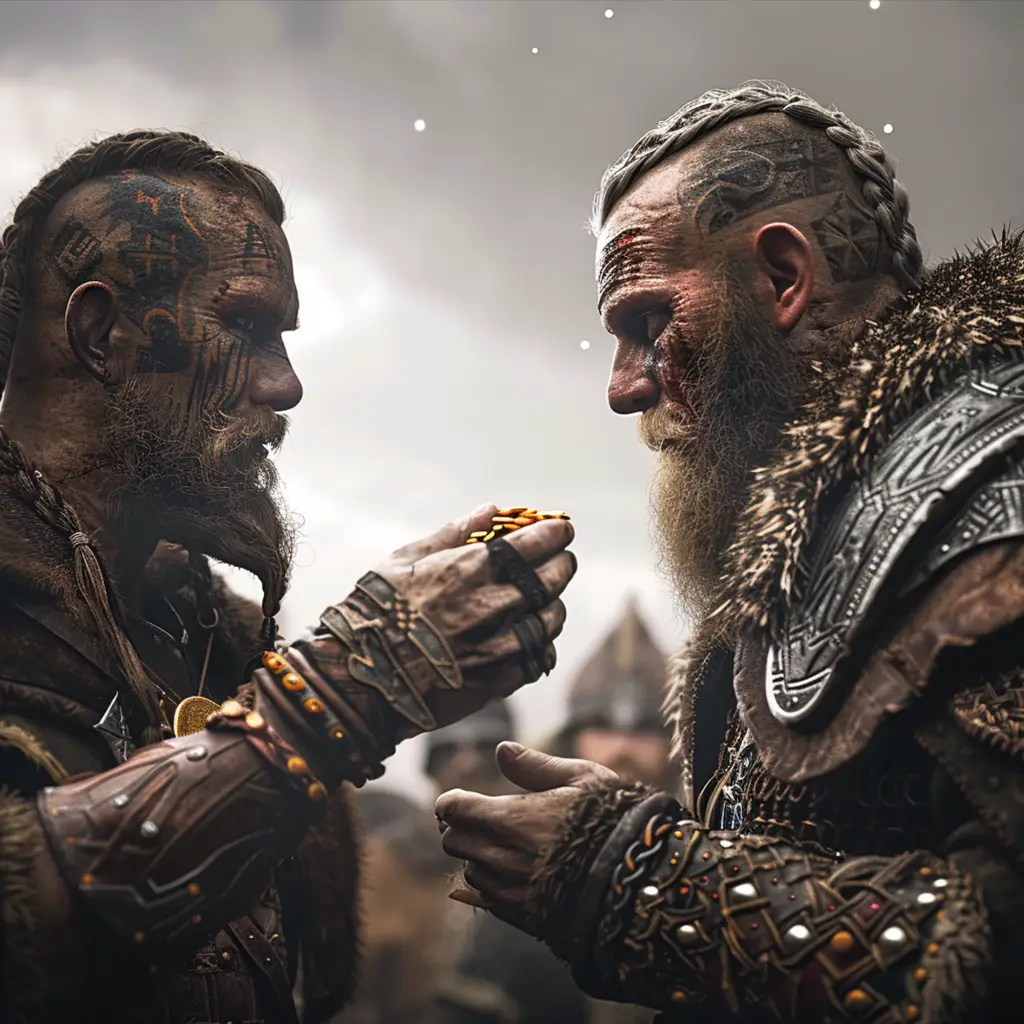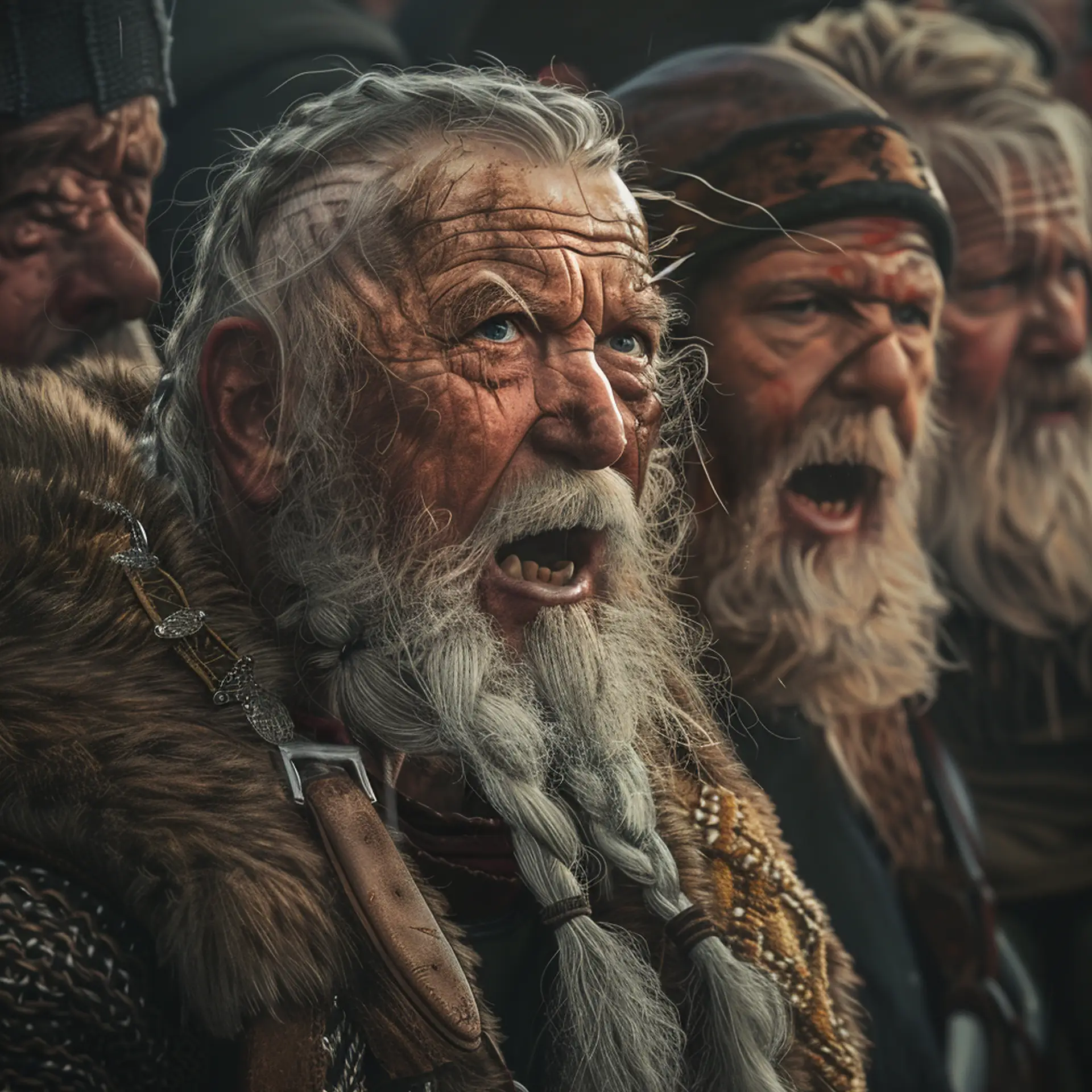Viking society operated under a set of laws and codes that governed various aspects of their lives. Here are some key principles and rules that characterized Viking law:
Thing System: Things, from the Old Norse þing,The Thing was a gathering where free men would meet to resolve disputes, make laws, and decide important matters. It served as both a legal assembly and a social event. Meeting at fixed intervals, the things, in which democratic practices were influenced by male heads of households, legislated at all levels, elected royal nominees, and settled all legal questions.
Blood Feuds: In cases of serious offenses or crimes, blood feuds were allowed. If one person wronged another, the offended party or their family had the right to seek vengeance. However, there were often efforts made within the Thing to reconcile conflicting parties and prevent prolonged feuds.
Compensation and Wergild: Instead of relying solely on punishment, Viking law often emphasized compensation as a means of resolving conflicts. Wergild, or “man gold,” was a specified amount of wealth paid to the victim or their family as restitution for a crime. The amount varied based on the severity of the offense.
Property Rights: Property rights were respected, and theft was punished harshly. However, there were also rules regarding land ownership and inheritance within families.
Hospitality: Hospitality was highly valued in Viking culture. Guests were expected to be treated well, and hosts were obligated to provide for their guests’ needs.
Oath-Taking: Oaths were considered sacred and binding. Breaking an oath was seen as a serious offense and could result in loss of reputation and social standing.
Social Structure: Viking society was hierarchical, with kings, chieftains, and jarls at the top, followed by free men and then thralls (slaves). Each group had its own set of rights and responsibilities.
Family Law: Family relationships were governed by both customary law and the authority of the head of the household, usually the father or eldest male relative. Marriage, divorce, and inheritance were all regulated by these laws.
Trial by Ordeal: In some cases, guilt or innocence was determined through trial by ordeal, where the accused would undergo a test believed to be guided by divine intervention.
Religious Practices: While not strictly legal, religious beliefs and practices played a significant role in Viking society. The worship of Norse gods and participation in rituals and ceremonies were important aspects of daily life.



